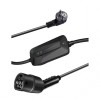Marine insurance typically refers to business boating ventures and transportation of cargo over water, though it is sometimes used to describe insurance for personal watercraft such as yachts or jet skis. Since the nature of marine business involves transportation from one area to another, it is difficult to regulate such insurance as the insured vessel will often travel between nations. Insurance products available for these types of risks can vary widely between companies for this reason.
Hull Insurance
Hull insurance covers physical damage to an insured vessel as well as salvage costs and limited property damage liability. It is similar to collision coverage for an automobile. Builder's risk policies protect these same vessels during construction until they are ready for operation.
Protection & Indemnity
Protection & Indemnity (P&I) policies pay for bodily injury and property damage caused by the vessel on behalf of its owner. This includes injuries sustained by the crew of the ship.
Time Policies
Hull insurance is often sold in time policies, which cover risks during a stated period of time. An insured vessel is not bound to a particular route and all voyages within the stated policy period are covered. If a voyage is not complete at the policy's expiration date, many time policies contain a "continuation clause" extending coverage until the boat reaches its destination.
Voyage Policies
Voyage policies protect a certain ship traveling a certain route regardless of length of time. In these cases the insurance would not be effective until the voyage begins and would terminate when the voyage ends.
Floating Policies
Designed primarily for merchants and exporters who frequently ship large amounts of mixed goods, floating policies allow the insured to buy a certain dollar amount of protection and declare particular ships, voyages and cargoes later on.
Valued Policies
Policies insuring a certain value amount of the property stated in the policy are called valued policies. Those with an undetermined value of the stated property are called unvalued, or open, policies. Open policies have a maximum undeclared value limit.
Port Risk Policies
Policies that insure against risks while vessels are parked at a port for a particular period of time are called port risk policies.






